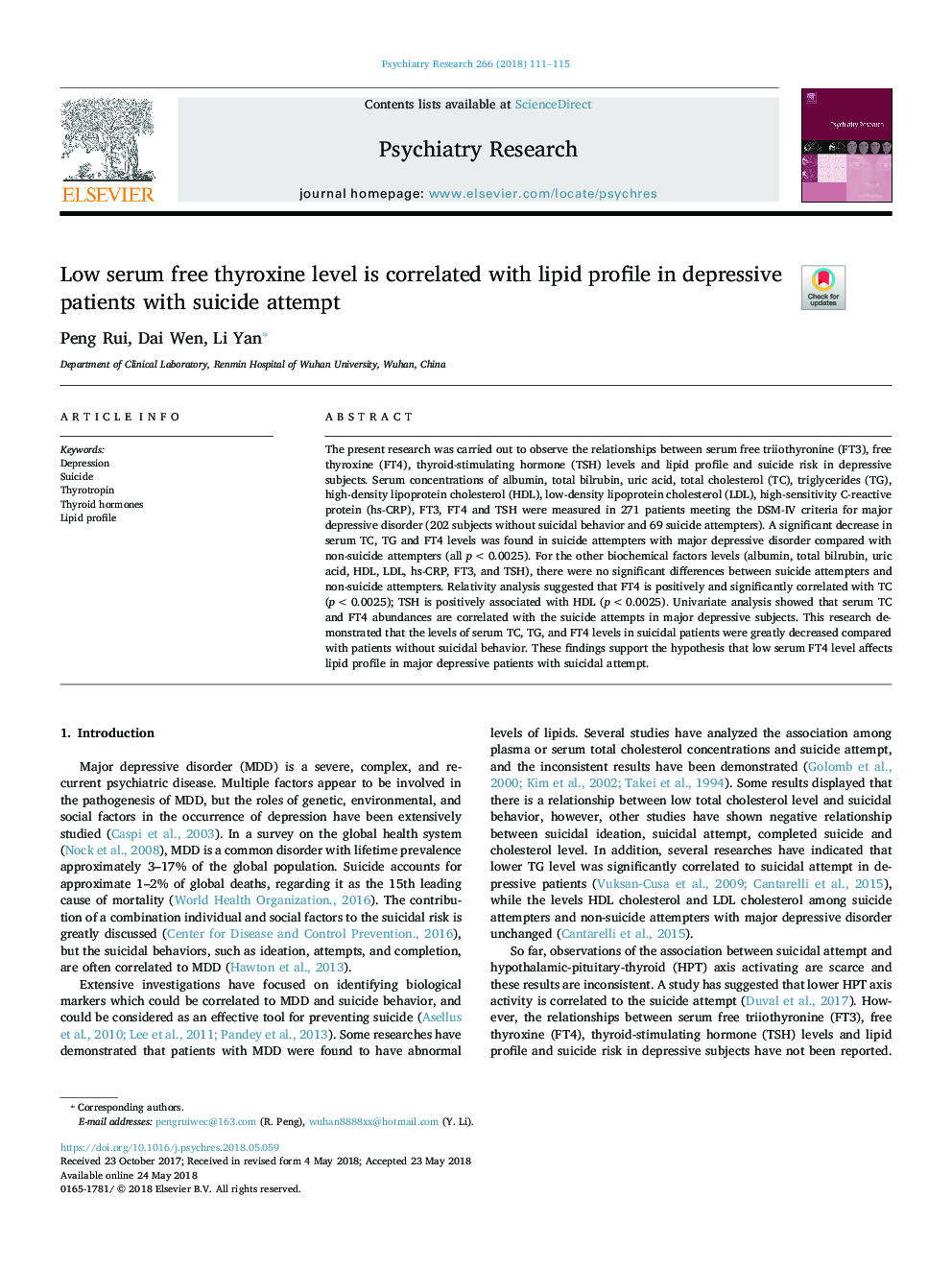| Article ID | Journal | Published Year | Pages | File Type |
|---|---|---|---|---|
| 6811244 | Psychiatry Research | 2018 | 5 Pages |
Abstract
The present research was carried out to observe the relationships between serum free triiothyronine (FT3), free thyroxine (FT4), thyroid-stimulating hormone (TSH) levels and lipid profile and suicide risk in depressive subjects. Serum concentrations of albumin, total bilrubin, uric acid, total cholesterol (TC), triglycerides (TG), high-density lipoprotein cholesterol (HDL), low-density lipoprotein cholesterol (LDL), high-sensitivity C-reactive protein (hs-CRP), FT3, FT4 and TSH were measured in 271 patients meeting the DSM-IV criteria for major depressive disorder (202 subjects without suicidal behavior and 69 suicide attempters). A significant decrease in serum TC, TG and FT4 levels was found in suicide attempters with major depressive disorder compared with non-suicide attempters (all pâ¯<â¯0.0025). For the other biochemical factors levels (albumin, total bilrubin, uric acid, HDL, LDL, hs-CRP, FT3, and TSH), there were no significant differences between suicide attempters and non-suicide attempters. Relativity analysis suggested that FT4 is positively and significantly correlated with TC (pâ¯<â¯0.0025); TSH is positively associated with HDL (pâ¯<â¯0.0025). Univariate analysis showed that serum TC and FT4 abundances are correlated with the suicide attempts in major depressive subjects. This research demonstrated that the levels of serum TC, TG, and FT4 levels in suicidal patients were greatly decreased compared with patients without suicidal behavior. These findings support the hypothesis that low serum FT4 level affects lipid profile in major depressive patients with suicidal attempt.
Related Topics
Life Sciences
Neuroscience
Biological Psychiatry
Authors
Peng Rui, Dai Wen, Li Yan,
